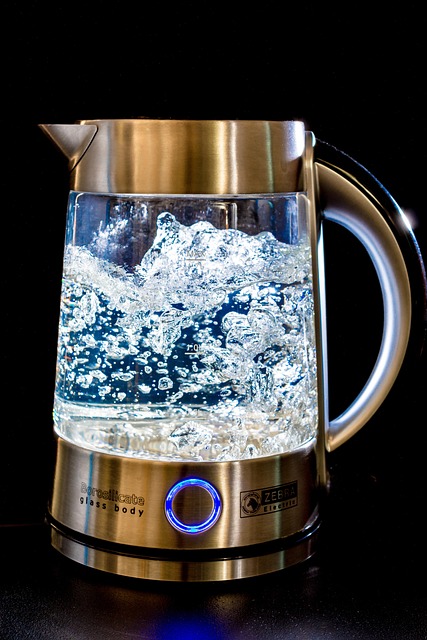Evaluating your water heater's age, performance, and signs like reduced hot water output, unusual noises, high energy bills, or frequent repairs is crucial. If your unit is over 10 years old or exhibits these issues, it may be more cost-effective to replace it with a modern, efficient model rather than continually repairing an outdated one. Modern heaters offer better performance and long-term savings, while older ones tend to have declining efficiency, higher energy bills, and potential internal damage.
Water heaters are an essential part of our daily routines, but they don’t last forever. Knowing when to repair or replace yours is crucial to avoid costly surprises and ensure reliable hot water. This article guides you through the process, helping you identify signs your water heater needs replacing—like increased energy costs, frequent repairs, or safety hazards. We’ll explore performance indicators, cost-effective solutions, and environmental considerations, empowering you to make an informed decision.
- Assessing the Age and Performance of Your Water Heater
- – How old is your water heater?
- – Common signs of aging and performance issues
Assessing the Age and Performance of Your Water Heater

Assessing the age and performance of your water heater is a crucial step in deciding whether to repair or replace it. One of the clearest signs you need a new water heater is its age. If your unit is over 10 years old, it’s likely past its prime and may not be as energy-efficient as newer models. Additionally, check for frequent repairs—if your water heater is constantly breaking down, the cost of ongoing maintenance might outweigh the investment in a replacement.
Keep an eye out for signs like reduced hot water output, unusual noises coming from the tank, or excessive energy bills. If you notice any of these Signs You Need a New Water Heater, it’s worth considering a replacement. Modern water heaters come with advanced features that can significantly improve efficiency and save you money in the long run.
– How old is your water heater?

The age of your water heater is a crucial indicator when deciding between repair and replacement. Most water heaters last anywhere from 8 to 12 years, depending on the model and installation quality. If your unit has exceeded this range, it’s a strong sign that it’s nearing the end of its lifespan. As water heaters age, their efficiency tends to decrease, leading to higher energy bills and potentially less hot water available.
Additionally, older heaters may start to exhibit various issues such as frequent temperature fluctuations, increased heating times, or even leaks. These problems can often be addressed through repair, but if the heater is consistently struggling to meet your needs, it might be more cost-effective to invest in a new one. By considering the age and performance of your water heater, you can better determine whether it’s time to embrace the Signs You Need a New Water Heater and opt for a modern, efficient model.
– Common signs of aging and performance issues

Water heaters, like many appliances, have an average lifespan and will eventually show signs of aging. Recognizing these indicators is essential to decide whether it’s time for a repair or a replacement. Some common symptoms suggest that your water heater may need to be retired and replaced. For instance, if you’ve noticed a significant decrease in the water heating capacity, such as taking longer to reach desired temperatures or inconsistent hot water flow, this could point to internal damage or sediment buildup.
Another sign of potential trouble is frequent temperature fluctuations, where the water suddenly becomes too hot or too cold during use. Uncontrollable temperature changes may indicate faulty controls or a malfunctioning heating element. Moreover, if your heater makes unusual noises, like banging, rumbling, or screeching sounds, especially during heating cycles, these could be red flags. Leaks from joints or connections are also clear indications that it’s time to consider a new water heater.
When deciding between repairing or replacing your water heater, consider its age and the frequency of issues. If your unit is over 10 years old and consistently exhibits signs like reduced hot water output, frequent temperature fluctuations, or persistent leaks, it might be time for a new one. Regular maintenance can extend the life of your current heater, but ultimately, recognizing the signs you need a new water heater will ensure you stay connected to reliable hot water without unexpected disruptions.
